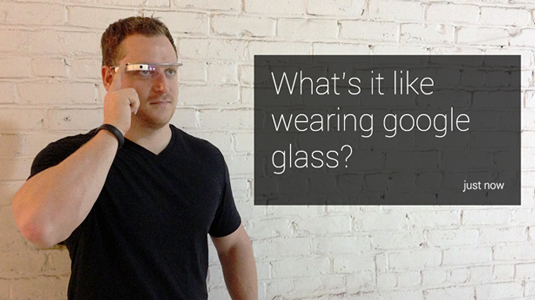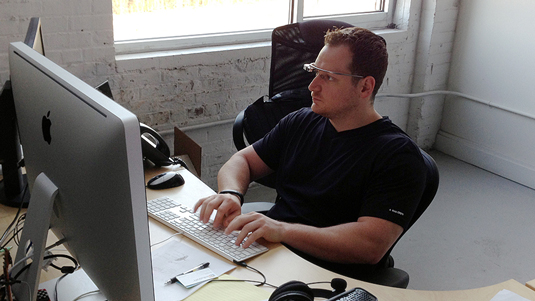designer glasses companies that make frames in japan
What designers need to know about Google Glass

When I first heard that I would be part of Google's Glass explorer program I was beyond ecstatic. As a creative technologist and lover of emerging technologies I immediately began imagining all the things I could do with Google Glass as a user and then began brainstorming with my team all the things we could make as developers.
So what is it? Google Glass is the search giant's latest innovation in wearable tech. It's essentially a pair of glasses packed with a handful of sensors (gyroscope, accelerometer), an 8 megapixel camera that shoots 720p video, a WiFi receiver, mobile browser, 12.6 gig hard drive and a Bluetooth adapter that can connect to your smartphone. The heads-up display projects images in front of your right eye, but not directly in your field of vision.
What can you do with it right now?
Though the product is still very much in its infancy, here is what you do can with it out of box today (Google is pushing updates weekly):
- Take photos and videos shareable to Google+ or your favourite social network.
- Check the weather and get location alerts near you (updates every 10 minutes if connected to the internet via WiFi or Bluetooth) and will show you points of interest from your Google Now
- Get GPS directions (via paired Android phone only)
- Google Search via text command: eg, "how long is the Brooklyn bridge?"
- Video hangout via Google Hangouts
There are a few publisher partners and platforms that already offer approved 'glassware' (that's what the apps for the device are called) . These allow you to do things like read your tweets, the New York Times and CNN News or push a note to your Evernote (still not working for me).
What will we be able to do in future?

It's our duty as explorers, curious consumers and visionaries to imagine a world where sensors and the 'internet of connected things' can bring us closer to this grand idea of the 'future'. Google's limited, but present mirror API is the gateway to the future of Google Glass. Developers are cranking away as you read this, making awesome things that will end up on your favourite buzzy tech blog as soon as they are ready for prime time.
Glassware Apps are already popping up, such as the Tesla Glass app, which lets Tesla owners check on their car and issue commands to it via the Glass-powered heads-up display, and Kitch Me, which aims to help even fools like me perfect a plate of chicken parmesan with their kitchen companion app. My team at Digital Surgeons is nearly done with our second app for one of our lifestyle clients right now thanks to Google's well-documented RESTFUL mirror API.
Lamda labs hacked the device and was working on facial recognition glassware apps powered by its facial recognition toolkit API. Google is shutting this down, for good reason naturally. I will say the API and device is still pretty limited unless you break the terms of service and start making native apps in Java. I've already seen full versions of Android running on the device.
What are the potential uses?
As ice hockey star Wayne Gretzky always said when asked how he always grabbed the puck: "It's about skating to where the puck is going to be, not where it is now." So what does the future of Google Glass and wearable tech look like?
Turn on any sci-fi movie worth its salt and imagine a world with heads-up displays, holograms, and the ability to control environments and devices with your five or maybe even six senses. More specifically...
- Public officials fitted with future versions of Google Glass scanning people's faces looking for criminals. Sensors that detect anomalies in body temperature and help them identify crimes in progress or track down criminals. Can we say Minority Report or Gattaca?
- Firemen being given instant directions to navigate a fire and smoke infested building through connected infrared scanners and detection connected apps that tap into GIS and building blueprint databases.
- Athletes being fed real time data on not just their location but body vitals and tips from their trainers all without ever having to reach for their phone.
- Advertisers pushing relevant deals and promotions based on your location, habits and what their predictive algorithms have determined is most appealing to you.
- Consumers living in the moment and never having to experience something through the lens of their camera or reach in their pocket for their phone snapping photos, sharing stories or approving payment transactions.
- Doctors helping patients and bringing in real time expertise from specialists across the world to save lives and share best-in-breed scientific discoveries with one another.
- Imagine being able to look at a product in a store or in a stranger's hands and get its information, price, reviews and see which of your friends love or hate it and for what reasons.
- Your personal assistant awaits you telling you about important events and sending you reminders to pick up an anniversary gift for your partner on your way home from work. This reminder will be followed by a list of locations that carry the perfect gift for them, based on social media activity and email exchanges.
Looking ahead
Google's got a long way to go before they reach the things that science fiction geeks like myself dream about. But, as always, Google stays true to their word with cars that drive themselves and their introduction of the Google Glass prototype.
Sensors and future tech will enable a hyper-connected, always-on world that fuses the internet with the human condition without the need for opposable thumbs and neck pain from looking down at your phones all day. If you're reading this and have ideas for apps or just want to geek out on future tech please follow me on Twitter @petesena and shoot me a tweet.
Words: Pete Sena
Pete Sena is the founder of Digital Surgeons, a digital marketing agency in New Haven, CT. A hybrid designer/developer who lives to create unique and powerful experiences for brands, if Pete ever takes a break he's probably reading, teaching himself something, attacking Crossfit or snowboarding.
Liked this? Read these!
- How to build an app: try these great tutorials
- Illustrator tutorials: amazing ideas to try today!
- Brilliant Wordpress tutorial selection
Have you had a go with Google Glass yet? Tell us about your experiences in the comments!
Related articles
designer glasses companies that make frames in japan
Source: https://www.creativebloq.com/web-design/google-glass-7133611